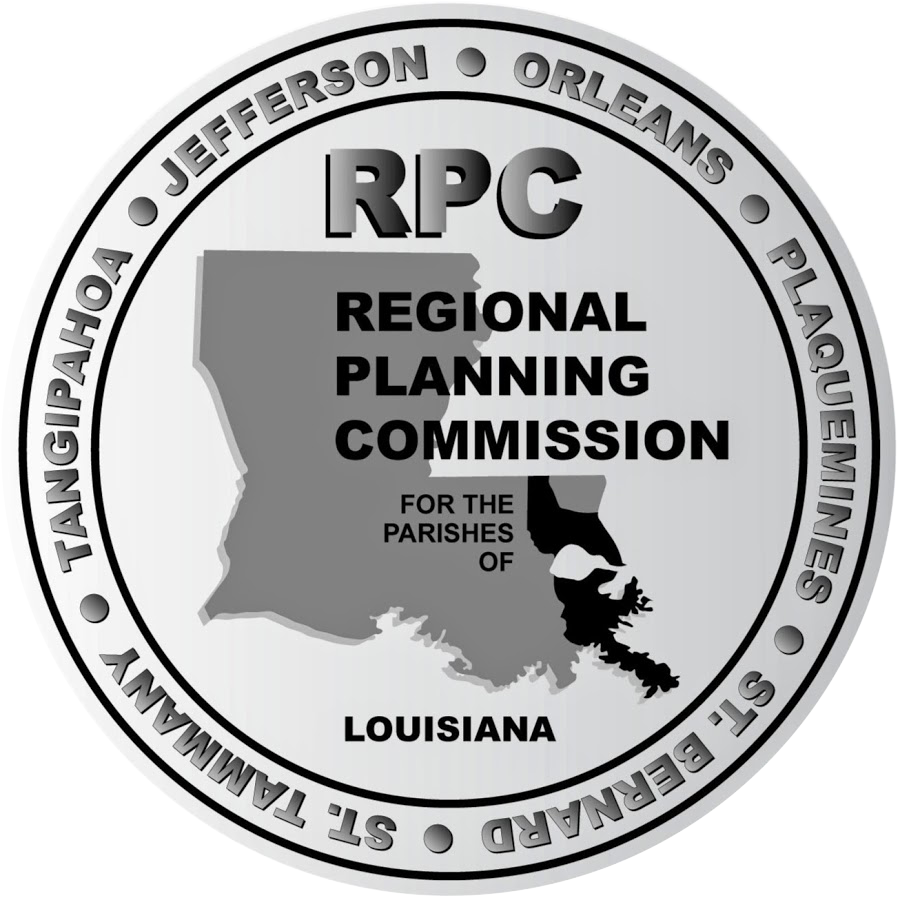Who is the Regional Planning Commission?
The Regional Planning Commission (RPC) serves as the designated Economic Development District for Jefferson, Orleans, Plaquemines, St. Bernard, St. Charles, St. John, St. Tammany and Tangipahoa Parishes as well as the Metropolitan Planning Organization (MPO) for all of the named parishes in addition to St. Charles and St. John parishes. This regional body is comprised of a 54 voting member board with representation from each of the six core parishes and supported by a staff of planning professionals. This board, which consists of elected officials and citizen members, meets on a monthly basis to discuss issues that are regional in nature.
What is a Metropolitan Planning Organization and what is its role?
A Metropolitan Planning Organization (MPO) is a federally-mandated and federally-funded transportation policy organization with a population of more than 50,000 people in its urbanized area. MPOs were created by Congress in 1962 to ensure that the expenditure of federal funds are made within a continuing, cooperative, and comprehensive planning process. It is the job of the MPO to facilitate the allocation of scarce federal resources for transportation investments; ensure that planning reflects a shared regional vision for the future; provide a comprehensive review of the region’s investment alternatives; provide a venue for collaboration amongst local governments, citizens, and other parties interested in the planning process. Based on this planning process, the MPO in cooperation with the state transportation agency selects projects and sets priorities for federal transportation investments within urbanized areas.
What is an Economic Development District?
As the Economic Development District, the Regional Planning Commission (RPC) works with local economic development organizations to develop and implement a shared regional comprehensive economic development strategy, commonly referred to as the CEDS. The designation of Economic Development District by the U.S. Economic Development Administration enables our region to apply for competitive federal funds for planning and infrastructure as well as technical assistance.
How is funding determined for the MPO?
Under federal law, MPO areas with urbanized areas greater than 200,000 people, referred to as Transportation Management Areas (TMAs), are entitled to specific allocations of federal funds called Urban Attributable Funds. As a TMA, the Regional Planning Commission for the Greater New Orleans area received a total of approximately $34 million in 2009 ($15.4 million from the Federal Highway Administration and $18.6 million from the Federal Transit Administration). In addition, governmental entities or other grant recipients are required to provide a local match share of up to 20% on each federal-aid project.
Who selects which projects are studied?
Ultimately the transportation policy board determines project studies and programs the region’s federal funds for capital improvements. However, project ideas and policy suggestions come from a variety of places, including citizens, the business community, and transportation providers among others. Typically before a project is slated for capital funding the in the RPC’s Transportation Improvement Program (TIP), the project must be included in the RPC’s long range transportation plan, referred to as the Metropolitan Transportation Plan (MTP).
How can I learn more about the RPC and participate in the transportation planning process?
The RPC provides several publications to inform the public about its transportation planning process including The Citizens’ Guide to Transportation Planning, the Public Involvement Plan, and the RPC newsletter (if you are interested in receiving our quarterly newsletter by email please contact [email protected] ). In addition, individuals can register for public meeting notices online at www.norpc.org, participate in surveys when applicable, attend monthly board meetings and submit either hand-written or electronic comments to the RPC.
How can I obtain additional information from RPC?
RPC publishes a range of studies, reports and data. Most products can be found on the organization’s website, however, should you desire access to information not available on the RPC website, materials may be obtained through a public records request.
RPC also provides map printing services to the public for a fee. Costs associated with this service vary depending on the size of the print. A fee schedule can be found here.
